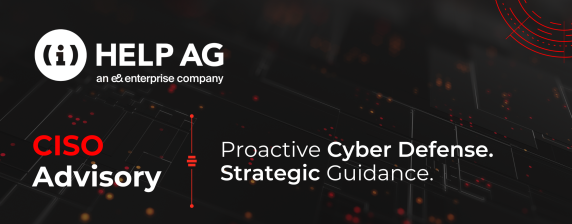Highlights From Security Consulting – Message From The Head Of Security Consulting

In today’s world, where there is significant reliance on digital platforms to conduct our day-to-day tasks, being within a business or a personal context, data privacy has become an important aspect to govern. The United Arab Emirates is known for always being at the forefront of adopting technology to provide and streamline state-of-the-art services to businesses and consumers who call UAE a home.
In addition to existing data protection laws pertaining to certain sectors/zones such as Dubai International Financial Centre (DIFC), Abu Dhabi Global Market (ADGM) and Dubai Healthcare City (DHCC); the UAE will launch a Federal Data Protection Law as announced in September of this year by the UAE’s Minister of State for Artificial Intelligence, Digital Economy and Remote Work Applications.
Major Data Subject Rights (or ‘DSR’) aspects that are expected to be addressed as part of the law include consent management, the right to access, the right to correction, the right to be forgotten as well as transparency in terms of why data is being collected.
This upcoming law also aims to provide adequate protection and streamline exchange of information with other regulated jurisdictions such as the EU, US and others. How can we help?
Help AG has partnered up with Security.ai, a leader in Privacy Management to enable organizations to comply with various data privacy regulations across the globe. This compliance is achieved through AI driven discovery, data subject rights automation as well as enhanced visibility into data processing activities and process automation.
AI powered PrivacyOps simplifies and automates privacy management across multi-cloud, SaaS and on-premises solutions

Below are some of the ways that PrivacyOps platform can help in meeting your privacy regulation requirements.
- Assess Regulation Readiness by measuring your organization’s posture against UAE Privacy Law requirements
- Discover personal data stored across all your internal and external systems within the organization and link them back to a unique data subject
- Track and honor consent and the individual’s consent revocation preference changes to prevent the transfer or processing of data without their consent
- Keep track of risks involved by continuously scanning and monitoring data against non-compliance to the protection of data, security controls, or data residency
- Automate compliance actions and breach notifications to concerned stakeholders with regards to security incidents by leveraging a knowledge database on security incident diagnosis and response
ACT AS A HUMAN FIREWALL
You are the first line of defense.
Don’t let the hackers get through.
| Do’s | Don’ts |
| Think twice before clicking on attachments, links or shortened URLs. | Don’t download unverified programs or unofficial apps. |
| Double check the email ID before you hit ‘Open’ or ‘Send’. | Don’t access illegal content such as pirated music, movies, and sport streams and don’t download cracked software; it is a doorway for malware and trojans. |
| Always verify. If it’s suspicious, report it. | Don’t leave your workspace without clearing your desk and locking your screen. |
| Use encryption when sharing or storing confidential data. | Don’t jailbreak your devices; it increases your exposure to security vulnerabilities and data breach risks. |
| Keep offline backups for your most important data as recommended by your organization. | Don’t communicate sensitive information using unsecure mediums. |
| Properly dispose of unwanted data by shredding physical documents and thoroughly wiping devices. | Don’t view or discuss confidential content in public. |
| Be wary of unexpected pop-up windows and ads. | Don’t skip or delay software updates. Hackers are always on the lookout for security gaps and unpatched vulnerabilities. |
| Use a strong, unique password for each account and change it frequently. | Don’t share your passwords with anyone, including colleagues, family members, and friends. |






